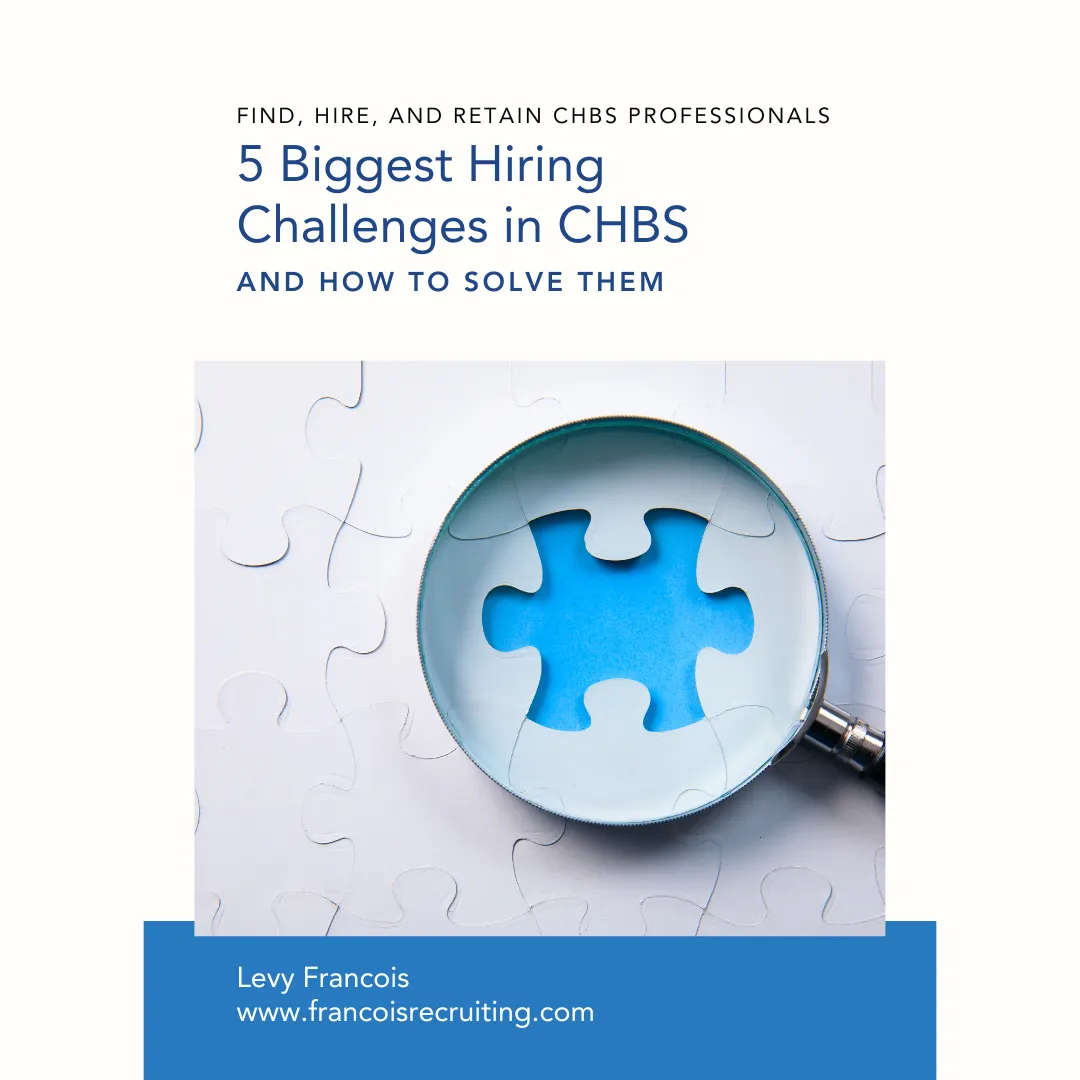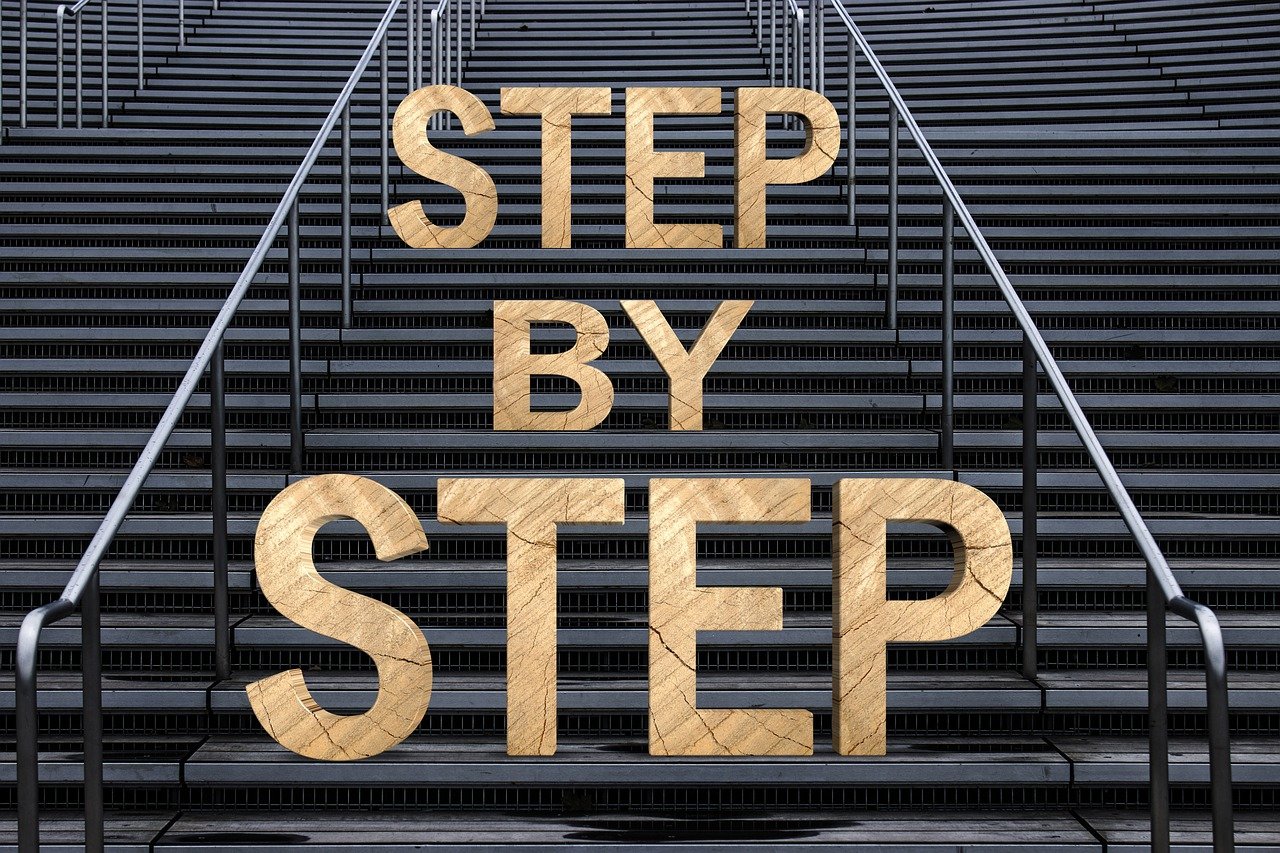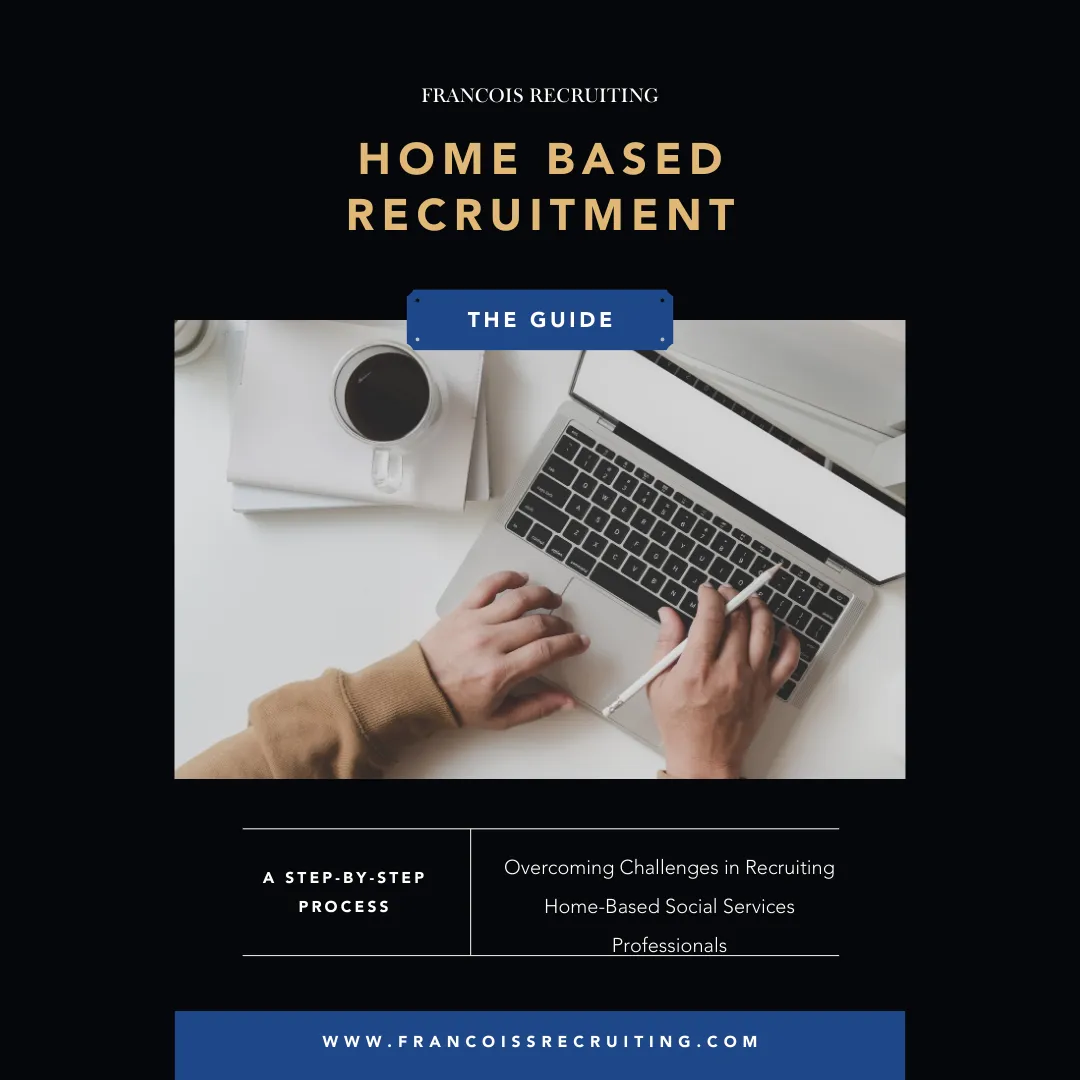
Hey, I'm Levy
I’ve always been passionate about helping people and building strong teams. When I noticed how many home-based service organizations were struggling to find compassionate, reliable employees, I knew I had to help.
That’s why I started Francois Recruiting:
To help business owners find staff who truly care about their
work.
To
ensure companies hire faster, smarter, and with
confidence.
To
create long-term solutions, not just quick fixes for staffing.
Recruiting top-tier CHBS Professionals is more challenging than ever
With high turnover, limited candidate availability, and increasing competition, organizations struggle to find and retain the right professionals.
That’s why we created this free guide—“Home-Based Recruitment: Overcoming Challenges in Recruiting Home-Based Social Service Professionals.”
Discover Tailored Recruitment Solutions Across Industries
Explore our specialized recruitment solutions designed to meet your unique needs.

5 Biggest Hiring Challenges (and how to fix them)
Are you experiencing:
High Employee Turnover
Trouble Finding Reliable Candidates
Retaining & Engaging CHBS Professionals
Trouble Finding Qualified Candidates
Loosing Candidates During Hiring Process



How to Attract and Retain Qualified and Compassionate Staff With Messaging
Specializing in technology sector placements, we connect firms with exceptional talent in software, cybersecurity, and system architecture to enhance innovation and digital dominance.

A Proven Recruitment Process that Saves Time & Money
Our industry experts understand unique market dynamics, ensuring placements are not only skilled but aligned with specific sector challenges and opportunities.



How Francois Recruiting Can Help
We specialize in hiring for home-based and community service organizations, ensuring you get reliable and qualified staff—quickly and efficiently.
FAQs
Answers to Your Top Questions About Our Recruiting Services
What industries does Francois Recruiting specialize in
We specialize in placement of Community-and-Home-Based Services Professionals: Human Services (Counselors, Senior/Adult Care, etc...) & Health Services (e.g. Therapist, Nursing, etc..)
How does Francois Recruiting ensure the quality of candidates?
We conduct in-depth interviews, skill assessments, and thorough reference checks to ensure candidate quality.
What is the typical timeframe for filling a position?
It typically takes 3-6 weeks to present qualified candidates.
Does Francois Recruiting provide support after a placement is made
Yes, we offer post-placement support to ensure both the client and the candidate are satisfied.
What is your policy if a hire does not work out?
We offer a guarantee period for each placement. If a hire doesn't meet your expectations within this period, we provide a replacement candidate at no additional cost.
What makes Francois Recruiting different from other recruiting firms
Our niche and personalized approach to Home-and-Community-Based Service Professionals sets us apart. We not only aim to fill positions but to build long-lasting relationships with our clients by understanding their unique needs and providing continuous support and consultancy.

From Sabots to Silicon: Parallels Between Historical Labor Movements and AI Revolution
The story of workers throwing their wooden shoes, or "sabots," into machinery to halt production is a powerful image that encapsulates the struggles of laborers during the Industrial Revolution. This act of defiance, which gave birth to the term "sabotage," symbolizes the tensions between human labor and mechanization. Fast forward to the 21st century, and we find ourselves in the midst of another transformative period: the rise of artificial intelligence (AI). This technological revolution poses new challenges and opportunities, echoing the conflicts and anxieties of the past. Let's explore the parallels between the historical saboteur movement and the current upheavals surrounding AI.
The Industrial Revolution: Sabotage and Survival
During the Industrial Revolution, rapid advancements in technology fundamentally altered the landscape of work. Mechanized looms, printing presses, and other innovations increased productivity but also threatened the livelihoods of skilled workers. In response, some laborers resorted to sabotage, deliberately damaging machinery to protect their jobs and protest poor working conditions. The term "sabotage" is believed to stem from the French word "sabot," referring to wooden shoes that workers supposedly threw into machinery to disrupt production.
These acts of resistance were driven by a fear of obsolescence and a desire for better working conditions. Labor unions and movements emerged, advocating for workers' rights and pushing for reforms such as reasonable working hours, safer conditions, and fair wages. The struggle was not merely about technology but about ensuring that the benefits of progress were shared more equitably.
The AI Revolution: A New Frontier of Uncertainty
Today, artificial intelligence represents a new frontier of technological advancement with profound implications for the workforce. AI and automation have the potential to revolutionize industries, from manufacturing and transportation to healthcare and finance. However, this transformation brings with it a host of challenges that mirror those faced by workers during the Industrial Revolution.
1. Job Displacement:
- Just as mechanization threatened the jobs of skilled artisans, AI poses a risk to a wide range of occupations. Routine and repetitive tasks are increasingly being automated, raising concerns about job displacement and economic inequality. Roles in customer service, data entry, and even some professional fields like law and medicine are susceptible to automation.
2. Skills and Education:
- The Industrial Revolution required workers to adapt to new machines and processes, often necessitating new skills and training. Similarly, the AI revolution demands a workforce that is adept at managing and working alongside intelligent systems. This shift underscores the importance of education and continuous learning to equip workers with the skills needed in an AI-driven economy.
3. Ethics and Fairness:
- Historical labor movements sought fair treatment and justice for workers. In the age of AI, ethical considerations are paramount. Issues such as algorithmic bias, privacy, and the ethical use of AI technologies are at the forefront of discussions. Ensuring that AI systems are designed and implemented in ways that are fair and just is a critical concern.
4. Labor Movements and Advocacy:
- The rise of AI has sparked new forms of labor activism. Workers in tech companies have organized to demand greater transparency and ethical standards in AI development. There are calls for regulations to ensure that the benefits of AI are widely shared and that the negative impacts on employment are mitigated.
Learning from History: Towards an Inclusive Future
The historical narrative of sabotage during the Industrial Revolution provides valuable lessons for navigating the challenges posed by AI. While technology has the potential to drive progress and improve lives, it must be managed in ways that are inclusive and equitable. Here are some principles to guide this journey:
1. Inclusive Dialogue:
- Engaging a broad range of stakeholders, including workers, policymakers, and technologists, is crucial for addressing the impacts of AI. Collaborative efforts can help shape policies that promote fair labor practices and mitigate job displacement.
2. Lifelong Learning:
- Investing in education and reskilling initiatives is essential. Providing workers with opportunities to acquire new skills and adapt to changing job requirements can help smooth the transition to an AI-driven economy.
3. Ethical Standards:
- Developing and enforcing ethical guidelines for AI development and deployment is critical. Ensuring transparency, accountability, and fairness in AI systems can help build trust and address concerns about bias and misuse.
4. Economic Redistribution:
- Considering policies that redistribute the economic gains from AI more equitably can help reduce inequality. This might include measures such as universal basic income, profit-sharing schemes, or enhanced social safety nets.
Conclusion
The tale of workers using their sabots to halt the advance of mechanization is a reminder that technological progress is not without its challenges. As we navigate the AI revolution, it is essential to draw on the lessons of history to ensure that this new wave of innovation benefits all members of society. By fostering inclusive dialogue, investing in education, upholding ethical standards, and considering economic redistribution, we can strive towards a future where AI enhances human potential and contributes to a more just and equitable world.

